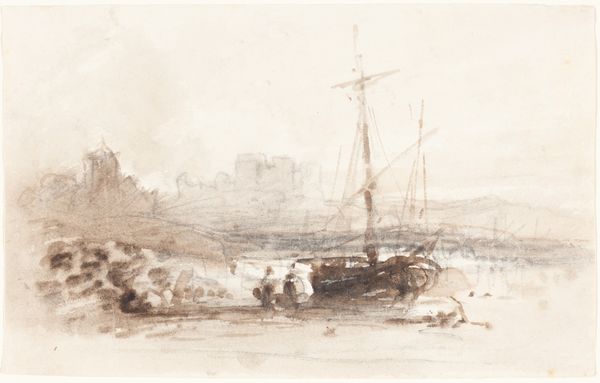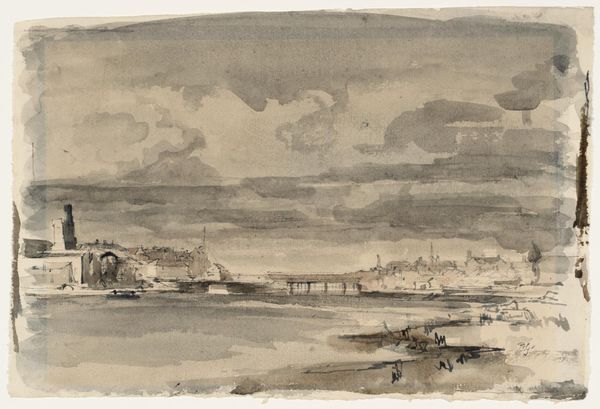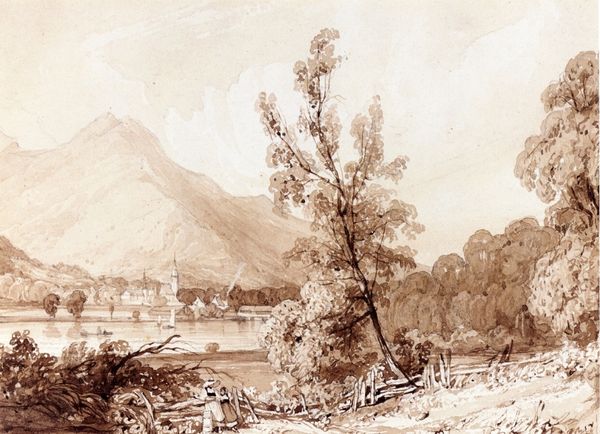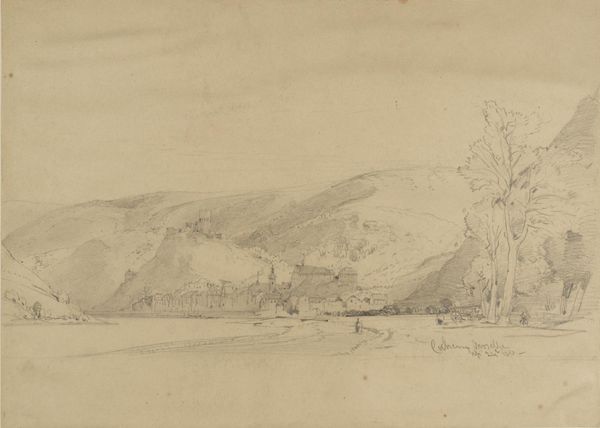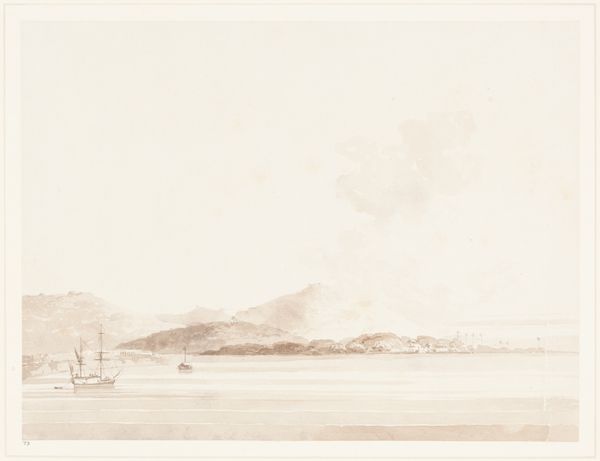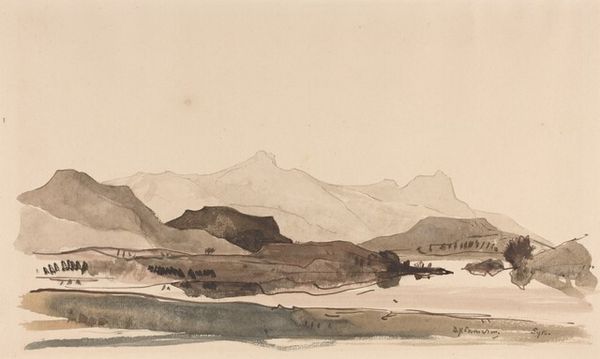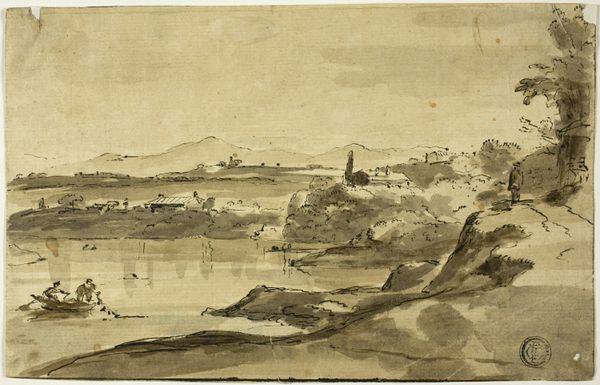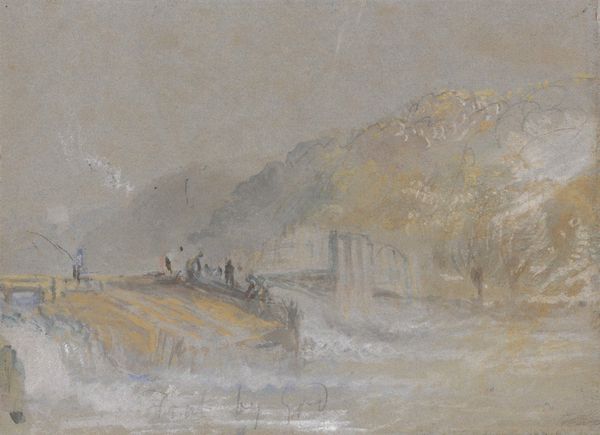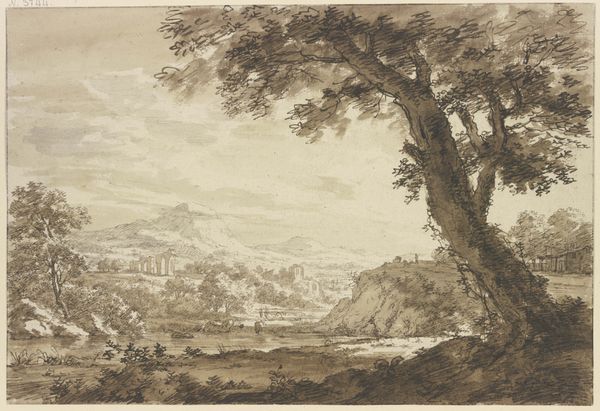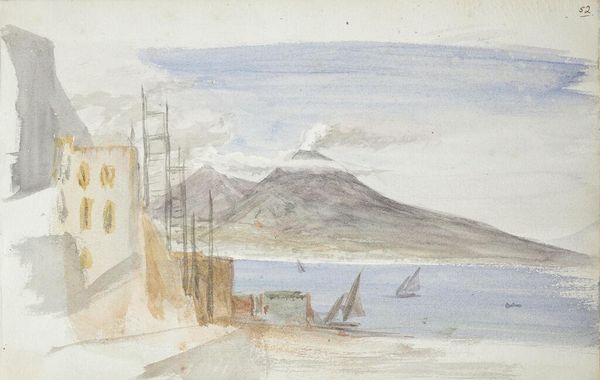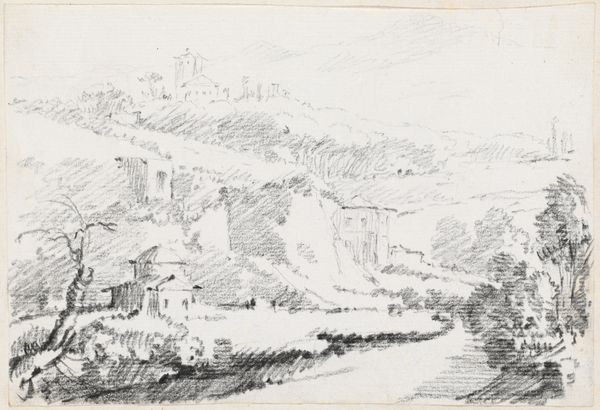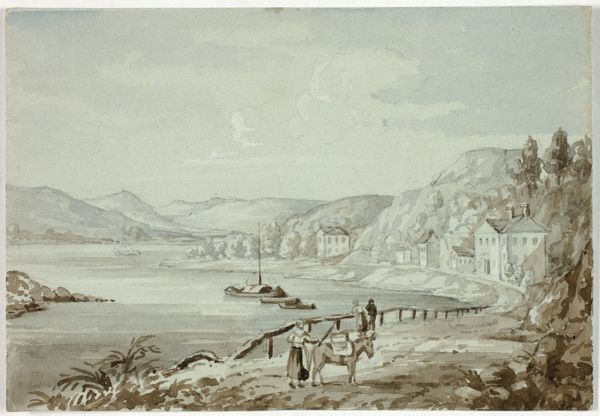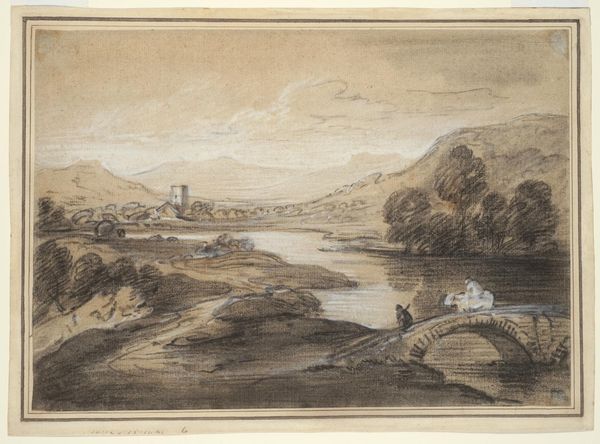
#
amateur sketch
#
pencil sketch
#
incomplete sketchy
#
landscape
#
charcoal drawing
#
possibly oil pastel
#
charcoal art
#
oil painting
#
underpainting
#
watercolor
#
environment sketch
Copyright: Public Domain: Artvee
Editor: This is "Conway" by David Cox, dating from 1783 to 1859. Looking at the sketch, with its muted tones and the implied vastness of the landscape, it feels incomplete somehow, almost dreamlike. How do you interpret this work? Curator: Incomplete is an interesting way to put it. I see a record of early industrial expansion and its effect on rural life. Cox captures the town, Conway, as both picturesque and possibly on the cusp of radical change. Look at how the figures seem small against this landscape. Does that evoke any ideas around class structures or land use? Editor: It does. There's a tension between the figures seeming so small and the vast landscape itself seeming tamed. Curator: Exactly. Cox was painting during a time of immense upheaval, where concepts like property ownership and enclosure acts significantly affected land access. This painting can become a stage to start a conversation around landscape, labour and the ways that they were viewed during this moment in history. Notice the muted tones you observed, were they chosen because that’s how he viewed this area? Editor: That hadn’t occurred to me. Now I’m wondering if those choices reflect something more critical about the changes occurring around him, some concern about the environment perhaps? Curator: That's a valid point, absolutely. Considering that Cox's work came well before the formal establishment of the environmental movement, this depiction becomes potent. Art isn't separate from activism; it mirrors the human condition and critiques society's values. What we see depends greatly on where we're standing, right? Editor: Definitely. I initially viewed it as an incomplete landscape, but now, I recognize the power within this sketch to reveal a moment of societal shift and an artist subtly grappling with industrial and environmental questions. Curator: Precisely. Art serves as a mirror and a catalyst, encouraging dialogue, sparking change, and demanding that we reflect upon our own role in these unfolding histories.
Comments
No comments
Be the first to comment and join the conversation on the ultimate creative platform.
